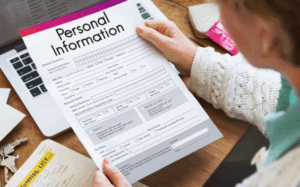I-751 Denied? Here’s What You Can Do Next
There’s nothing like the feeling of opening your mailbox, seeing that USCIS envelope, and thinking, finally, some progress. But instead, it’s a denial.
Your I-751 was denied.
We’ve sat with people in that moment. We’ve seen the mix of panic, confusion, and frustration. After all the time, effort, and paperwork, getting denied feels like the rug just got pulled out from under you.
But this doesn’t mean your journey ends here. It just means you have to take a different route forward.
Let’s walk through what you can do next.
Why Was Your I-751 Denied?
Most i-751 denied cases come down to one of these:
- Not enough evidence to prove the marriage was real
- Late filing or filing outside the required 90-day window
- Incomplete form or unsigned pages
- Failure to respond to a Request for Evidence (RFE)
- A divorce or separation that wasn’t explained through a waiver
USCIS doesn’t just deny for fun. There’s always a reason. The letter you received will explain it, and it’s important that you read it carefully. Don’t ignore it or assume it’s final.
Can I Still Work?
One of the most urgent questions we get is:
I-751 denied, can I still work?
After your I-751 is denied, your conditional permanent resident status ends. That means your legal authorization to work ends too, unless you file a timely appeal, refile with new evidence, or qualify for another form of relief.
You won’t be immediately deported. But you will start to lose benefits like the ability to legally work, travel freely, or renew your driver’s license. Time is critical here.
What Are Your Next Steps?
Here’s what you can do if your I-751 is denied:
1. Motion to Reopen or Reconsider
You can file a legal request asking USCIS to reopen your case or reconsider their decision. But this only works if:
- You have new evidence, or
- You believe USCIS made a mistake
It’s not a new application; it’s a request to look again at the one you already filed.
2. Refiling the I-751
In some cases, it’s best to file again. If you now have stronger evidence or need to include a waiver due to divorce or abuse, starting over might make more sense than trying to solve the first one.
If your marriage ended, but it was genuine at the time, you can refile with a waiver. The I-751 waiver approval rate is higher than most people expect, especially when the case is well-prepared.
3. Prepare for Immigration Court
If you do nothing after the denial, you may be placed in removal proceedings. That means an immigration judge will now be the one to decide your case. It’s serious, but not hopeless, especially if you act fast and get legal help.
What Is the Timeline?
Many people ask: how long does it take for an I-751 after re-filing?
Once you file again, the I-751 processing timeline resets. Most cases take 12 to 30 months, depending on your service center.
You can always check the USCIS I-751 processing time 2025 online using your receipt number. Processing times are public and updated regularly.
What If You Want to Refile?

If you’re thinking about starting fresh, be careful to follow the I-751 form instructions exactly. Here’s what to do differently this time:
- Use the newest version of the form
- Read the full I-751 instructions form
- Follow the immigration form I-751 instructions word for word
- Check where to send Form I-751 using the official USCIS address chart
- Include as many documents as possible: tax returns, photos, lease, insurance, bills, affidavits
- Explain any gaps or issues in a clear personal letter
This form is not just paper, it’s your story. Make sure it’s strong, truthful, and clear.
What Happens After Approval?
If your refiling or appeal is successful, what happens after I-751 is approved?
You’ll get a 10-year permanent resident card. That means you are no longer a conditional resident. You’re now a full permanent resident.
If you plan to apply for naturalization (Form N-400), this will be the foundation. But here’s something important: if your I-751 was denied, and you already applied for citizenship, your Form N-400 will also be denied.
People Ask Us: Will a Green Card be Revoked if the N400 is Denied?
Not always, but if your I-751 is denied first, your N-400 cannot be approved. The denial affects your green card status. That’s why it’s so important to fix your I-751 before trying to move forward with anything else.
Where Do I Send My I-751?
Another thing people get wrong: the address.
Where do I send Form I-751? Depends on:
- Your state
- Whether you’re using USPS or FedEx
- Whether you’re filing jointly or with a waiver
Always check the official USCIS Form I-751 instructions for the latest address. Sending it to the wrong place means delays or even rejection.
Go Over the Instructions Again

We’ve seen people make tiny mistakes that cost them months.
- Forgetting to sign
- Sending an old version of the form
- Skipping the fee
- Missing documents
Read the instructions for Form I-751 word for word. Or better yet, get help. The I-751 form instructions are long, but they’re there to protect you and guide you through.
Who Is the Petitioner?
If you’re still married and filing jointly, both spouses are petitioners.
If you’re divorced or filing alone with a waiver, you are the only petitioner.
Getting this part wrong causes confusion and delays, so make sure you understand who the petitioner is in I-751 before filing again.
Final Thoughts: You Still Have a Path
We know how it feels. That sinking stomach, that fear of losing your life here, the weight of wondering if you did something wrong.
But here’s the truth: many people have their I-751 denied and still win later. You are not the only one. You’re not stuck. You just need to move wisely and quickly.
Need Help After a Denial?

If your I-751 was denied and you’re unsure what to do next, don’t try to figure it out alone. Visit Passage Immigration Law, we’ve helped families, couples, and individuals rebuild strong cases and protect their green cards.
Schedule a consultation, and we’ll help you make a plan and fight for the future you’ve worked so hard for.
Disclaimer: This article offers general legal information, not legal advice. Do not rely upon this information without seeking legal counsel. If you need legal advice, you may contact us directly to speak with an attorney. We disclaim all liability with respect to actions taken based on any information presented. Every case is different, and outcomes will vary depending on the unique facts and legal issues of your case.







